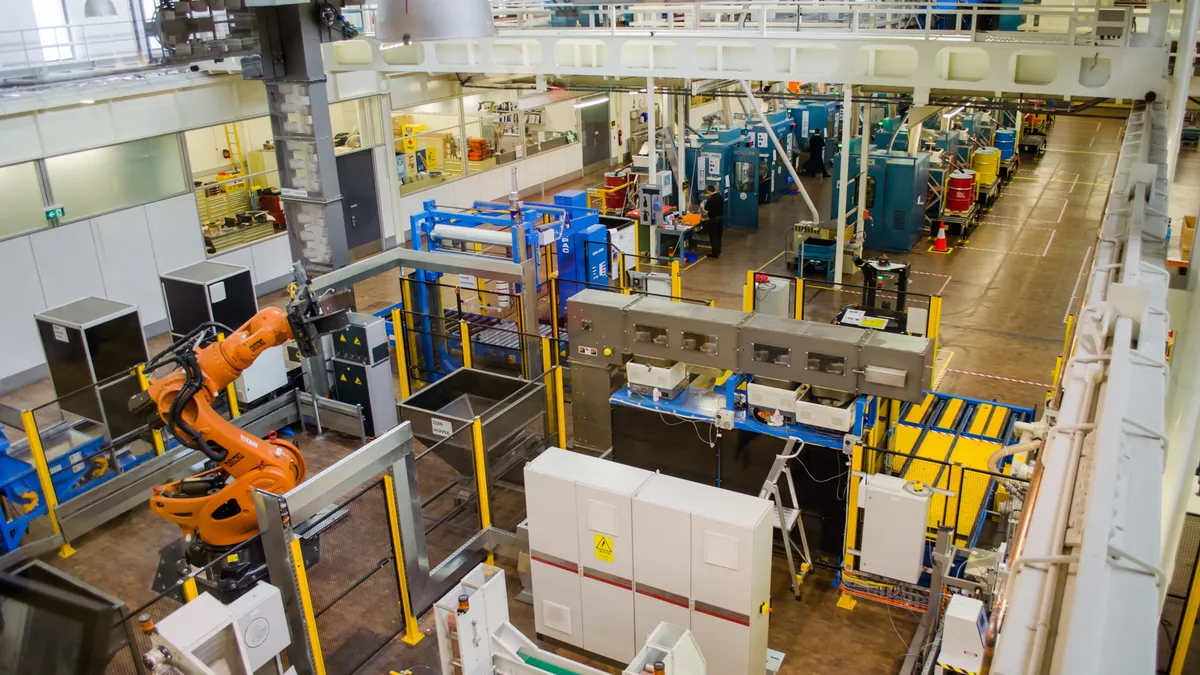Dive Brief:
- The majority of industrial manufacturing business leaders (55%) reported that artificial intelligence is moving faster than it should in their field, with 49% of retail and tech leaders citing the same concern in their industries, according to a KPMG report published Tuesday.
- The majority of industrial manufacturing, tech and retail leaders said the pandemic sped up their AI adoption plans.
- In the industrial manufacturing space, 93% of decision makers say AI is moderately to fully functional in their companies. The report surveyed 950 full-time business decision makers and/or information technology decision makers.
Dive Insight:
Businesses turn to AI for adaptability and efficiency. The technology promises augmented capabilities and an upper hand in competitive markets.
In the industrial manufacturing space, the need to enable social distancing in warehouses and factories sped up ongoing automation efforts. While manufacturers initially froze investment budgets, automation is one area where leaders increased investments at the start of the pandemic.
Manufacturing leaders cite automation among the top two technologies where spend is growing to increase efficiency, according to data from Plex Systems' State of Smart Manufacturing report. Smart manufacturing technologies "are no longer a 'nice to have' nor a luxury item; they are imperative for businesses to survive," said Bill Berutti, CEO of Plex Systems, in the announcement.
But questions about risk remain in the aftermath of quick adoption. Concerns surrounding the speed of AI deployment are linked to the debate surrounding ethics, governance and regulation of AI, according to Traci Gusher, principal of artificial intelligence at KPMG.
"Many business leaders do not have a view into what their organizations are doing to control and govern AI and may fear risks are developing," said Gusher in the research announcement.
How fast is too fast? The current pace of AI disruption, for three-quarters of business leaders, is set to transform organizations over the coming three years, according to data from Deloitte.
Keeping up with AI implementation at technology's breakneck clip also means organizations can attempt to solve the wrong problems with AI-powered tools. Tedious problems within critical company processes, where sufficient data is available, make for ideal AI use cases, according to entrepreneur Tom Taulli, speaking last month at an online panel.















